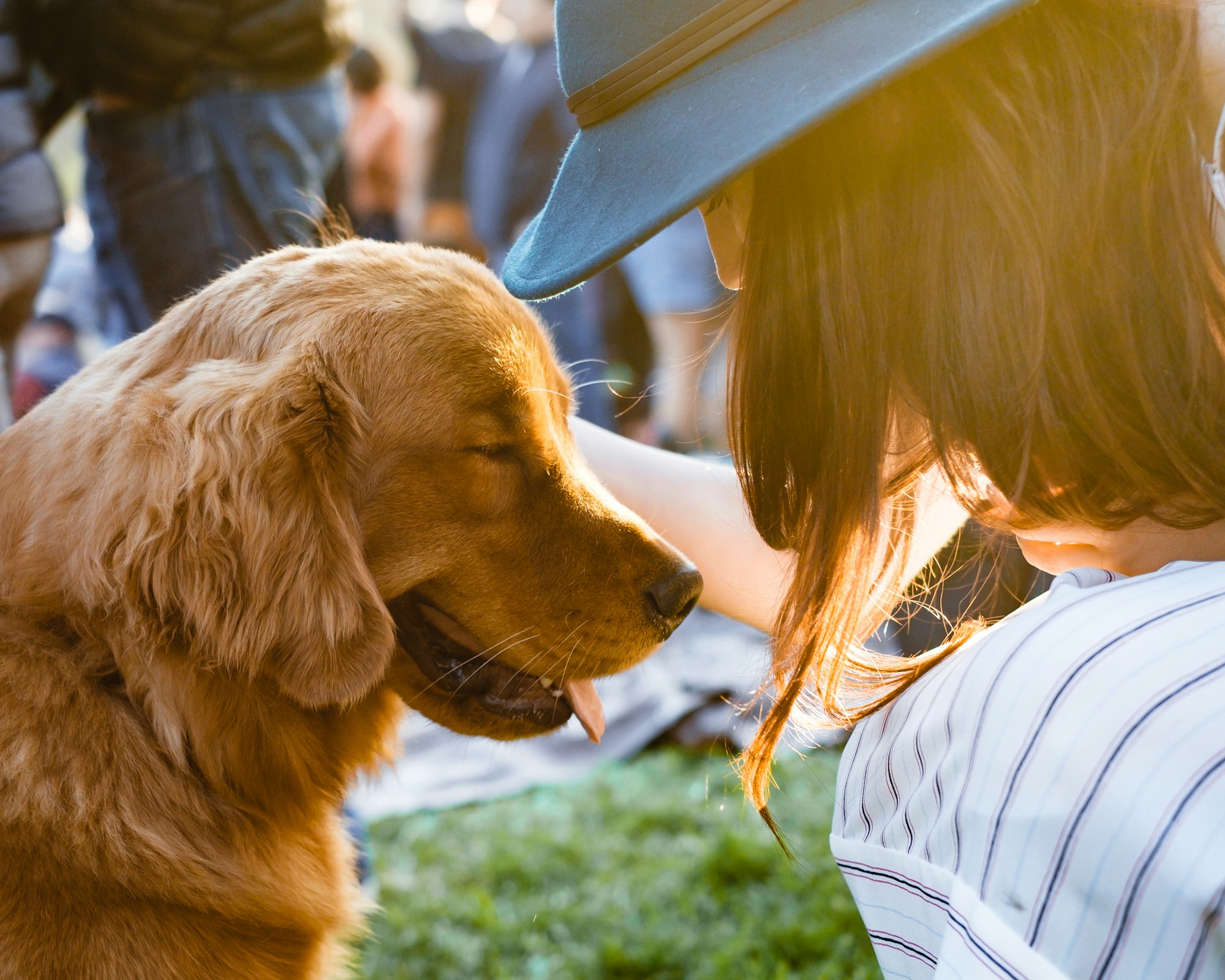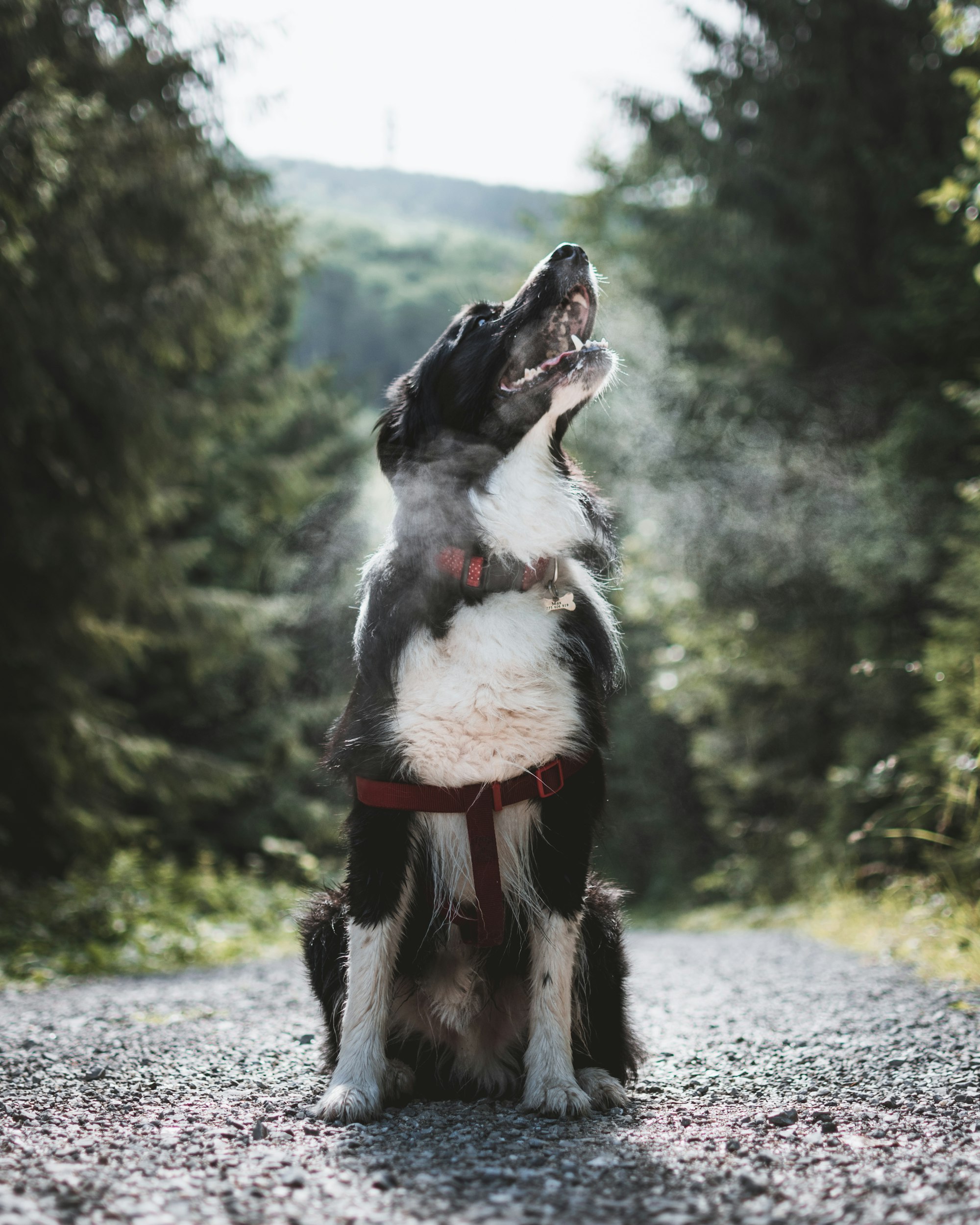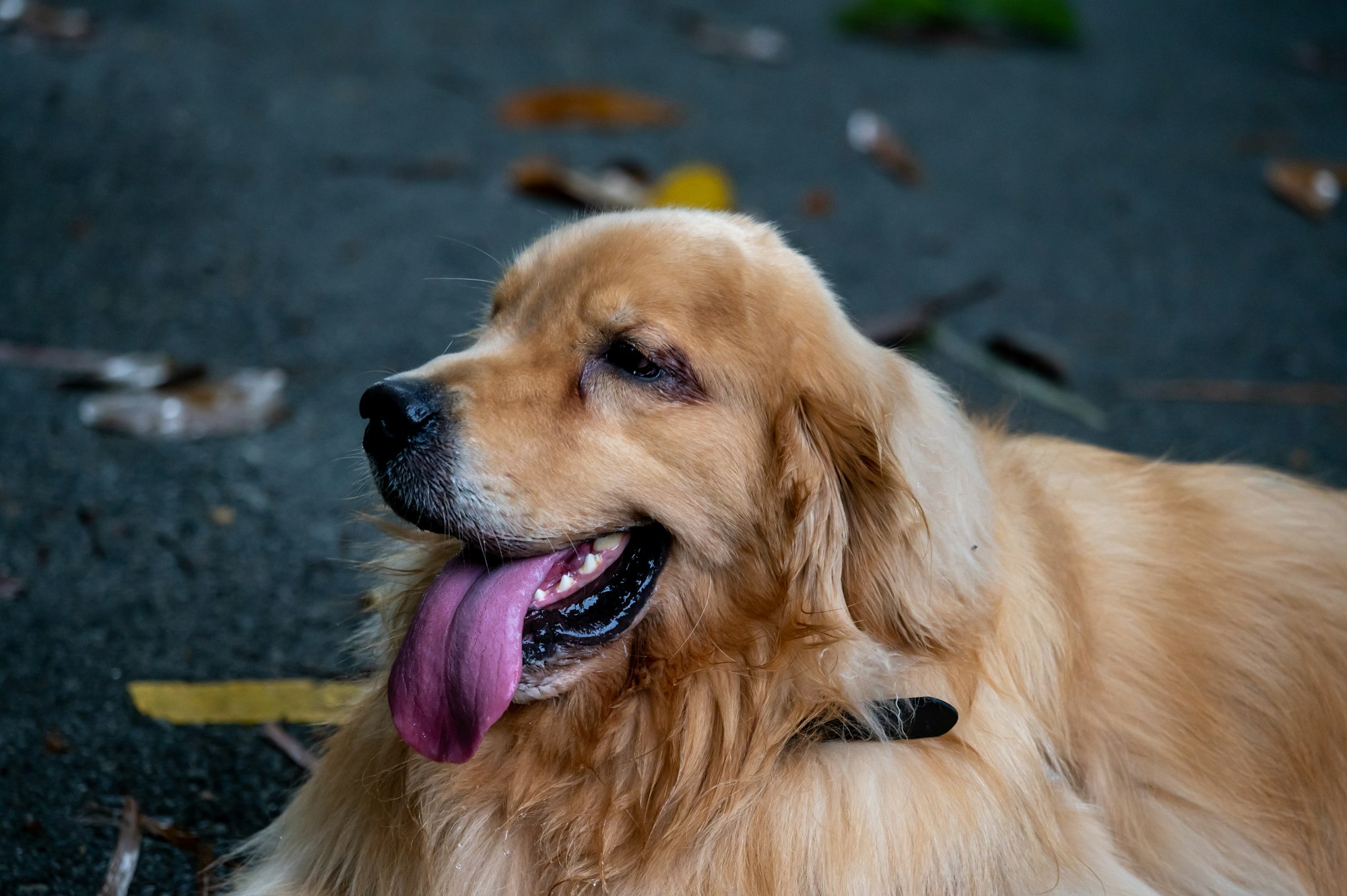Do you find yourself wrinkling your nose every time your beloved pooch comes in for a friendly lick? Dogs are known for their loyalty and affection, but sometimes their bad breath can put a damper on those heartwarming moments. Fortunately, there are several effective and natural remedies you can try at home to tackle that not-so-pleasant doggy breath issue. In this article, we'll explore a variety of solutions that will have your furry friend's breath smell fresh and clean again.

Understanding the Causes of Bad Breath in Dogs
Just like humans, dogs can suffer from bad breath. The main culprits behind this issue are usually poor dental hygiene, plaque buildup, and bacteria in the mouth. In some cases, bad breath can also be a sign of underlying health problems.
Maintaining Dental Hygiene: Taking care of your dog's dental hygiene is essential not only for their overall health but also for keeping their breath fresh. Poor dental hygiene can lead to plaque buildup, gum disease, and bad breath. Here's how you can ensure your furry friend's dental health:
Brushing Your Dog's Teeth: Regularly brushing your dog's teeth is one of the most effective ways to prevent bad breath and dental issues. Use a toothbrush and toothpaste specially designed for dogs. Start by gently introducing the toothbrush to your dog's mouth, allowing them to get used to the sensation. Then, gradually begin brushing their teeth in small circular motions. Aim for a few times a week to keep plaque at bay.
Dental Chews and Toys: Chewing helps naturally clean your dog's teeth by reducing plaque buildup. Look for dental chews and toys that are designed to promote dental health. These products are often formulated to remove tartar and freshen breath as your dog chews on them. Additionally, the chewing action stimulates saliva production, which can help keep the mouth clean.
Regular Vet Check-ups: Include regular dental check-ups in your dog's overall healthcare routine. Veterinarians can identify dental issues early on and recommend appropriate treatments. Professional cleanings may be necessary to remove stubborn tartar that brushing alone can't eliminate.
Balancing Diet for Fresher Breath
Your dog's diet plays a significant role in their overall health and the freshness of their breath. A well-balanced diet can contribute to better oral health and minimize bad breath. Here's how to create a diet that promotes fresher breath:
Choosing High-Quality Dog Food: Opt for high-quality dog food that is nutritionally balanced and free from artificial additives. Look for options that list real meat as the main ingredient. Avoid foods that contain excessive fillers, as they can contribute to dental issues and bad breath.
Crunchy Fruits and Veggies: Incorporate crunchy fruits and vegetables into your dog's diet. Apples, carrots, and celery are excellent choices as they help clean teeth while being low in calories. The act of chewing on these natural snacks can help remove food particles and promote healthier gums.
Proper Proportions and Fresh Water: Ensure your dog's diet is well-proportioned and meets dog nutrition needs. Also, always provide access to clean and fresh water. Adequate hydration supports saliva production, which helps wash away food particles and bacteria from the mouth.

Homemade Fresh Breath Treats
Homemade treats can be a delightful and effective way to combat bad breath in your furry friend. Creating treats using natural ingredients can not only improve your dog's breath but also provide them with a tasty and beneficial snack. Here are a couple of ideas for homemade fresh breath treats:
Parsley and Mint Treats: Parsley and mint are herbs known for their breath-freshening properties. They contain compounds that can help neutralize odors in the mouth. You can create homemade treats by finely chopping fresh parsley and mint leaves and incorporating them into a treat recipe. Keep in mind that while these herbs can be beneficial in moderation, avoid excessive consumption, as they may not be suitable for all dogs.
Coconut Oil Delights: Coconut oil has gained popularity for its antibacterial and antifungal properties. Incorporating coconut oil into your dog's treats can help combat the bacteria responsible for bad breath. Simply melt a small amount of coconut oil and mix it with other dog-friendly ingredients like oats or peanut butter. Form the mixture into bite-sized treats and let them solidify before offering them to your dog.
Importance of Hydration
Hydration is a fundamental aspect of maintaining good oral health and combating bad breath in dogs. Proper hydration supports various bodily functions, including saliva production, which plays a crucial role in oral hygiene. Here's why staying hydrated is essential:
Providing Clean and Fresh Water
Always ensure that your dog has access to clean and fresh water throughout the day. Water not only keeps your dog hydrated but also helps rinse away food particles and bacteria from their mouth. Adequate water intake contributes to the production of saliva, which naturally helps cleanse the mouth and maintain oral health.
Saliva's Role in Oral Health
Saliva is more than just water; it contains enzymes that aid in the digestion process and help break down food particles. Additionally, saliva helps control the growth of bacteria in the mouth. When your happy dog is well-hydrated, their saliva production increases, providing a natural defense against bad breath and dental issues.
Regular Vet Check-ups
Routine visits to the veterinarian are essential for maintaining your dog's overall health, including their oral hygiene. Regular check-ups allow the vet to identify any potential dental issues or underlying health problems that could be causing bad breath. Here's why regular vet check-ups are crucial:

Identifying Underlying Health Issues: Persistent bad breath in dogs can sometimes be a symptom of underlying health issues such as gum disease, infections, or even systemic problems. A veterinarian can perform a thorough examination, including checking your dog's teeth, gums, and oral cavity, to identify any potential issues. Early detection and intervention can prevent these problems from worsening and affecting your dog's overall well-being.
Professional Cleanings: Vets have the expertise and tools to perform professional dental cleanings for your dog. These cleanings involve removing plaque and tartar buildup from the teeth and addressing any potential dental issues. Professional cleanings are often performed under anesthesia to ensure the safety and comfort of your furry friend during the procedure.
Effective Ways to Clean Your Dog's Mouth
Regular cleaning of your dog's mouth is essential to maintain their oral health and combat bad breath. There are various effective methods you can use to clean your dog's mouth at home:
Gauze and Finger Brush
Using a piece of gauze wrapped around your finger, gently rub your dog's teeth and gums. This technique helps remove debris and food particles that can contribute to bad breath and plaque buildup. Start slowly and make sure your dog is comfortable with the sensation before proceeding.
Water Additives for Drinking Water
There are specially formulated water additives available that you can add to your dog's drinking water. These additives contain enzymes and compounds that help fight bacteria and reduce plaque buildup in the mouth. As your dog drinks water, these additives work to promote oral hygiene and fresher breath.
Remember that consistency is key when it comes to cleaning your dog's mouth. Regular maintenance through these methods can help prevent dental issues and keep your dog's breath smelling fresh.
These practices, combined with a balanced diet and proper dental care, will contribute to a happy and healthy canine companion.
A Word About Chewing Habits
Chewing habits play a significant role in your dog's dental health and can greatly impact their breath. Providing appropriate chew toys and treats can contribute to cleaner teeth and fresher breath. Here's why chewing habits matter:
Benefits of Appropriate Chew Toys:
Chew toys serve multiple purposes for your dog's oral health. They satisfy your dog's natural urge to chew, help keep their teeth clean by reducing plaque and tartar buildup, and can even promote healthy gum tissue. Opt for sturdy, dog-safe chew puzzle toys that are specifically designed to aid in dental care. These toys encourage your dog to chew while providing a natural way to remove debris from their teeth.
Avoid Inappropriate Chewing
While appropriate chew toys are beneficial, it's vital to discourage your dog from chewing on inappropriate items such as shoes, furniture, or other household objects. Ingesting non-edible items can lead to digestive issues, blockages, and even dental problems. By providing engaging and safe chew toys, you can redirect your dog's chewing behavior positively.
When to Seek Professional Help
While home remedies and good practices can go a long way in maintaining your dog's oral health, there are situations where seeking professional help from a veterinarian is crucial:
Persistent Bad Breath: If your dog's bad breath persists despite your efforts to improve their oral hygiene, it's time to consult a veterinarian. Chronic bad breath could be a sign of underlying dental issues or health problems that require medical attention.
Visible Dental Issues: If you notice any signs of dental issues such as swollen gums, bleeding, loose teeth, or excessive drooling, it's necessary to seek professional help. These symptoms could indicate more serious problems that a veterinarian can diagnose and treat appropriately.
Behavioral Changes: Changes in your dog's eating habits, drooling, or reluctance to chew on toys may signal discomfort in their mouth. These changes should be addressed promptly by a vet to rule out any dental problems.
Regular Dental Check-ups: Regular dental check-ups with a veterinarian are recommended to assess your dog's oral health. Professionals can detect early signs of dental issues and guide on maintaining a healthy mouth.
Remember that your dog's oral health is a vital aspect of their overall well-being. Regular care and prompt attention to any changes or concerns will help ensure your furry friend enjoys fresh breath and optimal dental health.
Conclusion
Your furry friend's bad breath doesn't have to put a damper on your relationship. By following these natural and effective home remedies, you can ensure your dog's breath remains fresh and pleasant. Remember, a healthy mouth is key to your dog's overall well-being.
FAQs
Q1. Can I use human toothpaste for my dog's teeth?
- No, it's not recommended to use human toothpaste for dogs. Human toothpaste contains ingredients that can be harmful if ingested by dogs. Always use toothpaste formulated specifically for dogs.
Q2. How often should I brush my dog's teeth?
- Aim to brush your dog's teeth at least 2-3 times a week. Regular brushing helps prevent plaque buildup and maintain fresher breath.
Q3. Are there any fruits that are bad for my dog's teeth?
- Yes, some fruits can be harmful to your dog's teeth due to their high sugar content. Avoid feeding your dog fruits like grapes and raisins, as they can be toxic. Stick to dog-friendly fruits like apples and carrots.
Q4. Why is hydration important for my dog's breath?
- Hydration supports saliva production, which naturally cleanses the mouth and helps prevent bacterial growth. Proper hydration contributes to fresher breath and better oral health.
Q5. When should I seek professional help for my dog's bad breath?
- If your dog's bad breath persists despite home remedies and proper dental care, it's advisable to consult a veterinarian. Persistent bad breath could indicate underlying dental or health issues that require professional attention.
Q6. How do chew toys help with dental health?
- Appropriate chew toys promote dental health by helping to clean teeth, reduce plaque and tartar buildup, and stimulate healthy gum tissue. Chewing on these toys can contribute to fresher breath and a healthier mouth.
Q7. What can I do if my dog resists toothbrushing?
- If your dog is not comfortable with toothbrushing, start by introducing them to the toothbrush gradually. Use positive reinforcement and rewards to make the experience more pleasant. You can also consult your vet for advice on acclimating your dog to toothbrushing.
Q8. Can bad breath be a sign of serious health issues?
- Yes, persistent bad breath can sometimes indicate underlying health problems such as gum disease, infections, or digestive issues. If your dog's bad breath is accompanied by other symptoms or behavioral changes, it's best to consult a veterinarian.
Q9. How can I prevent my dog from chewing on inappropriate items?
- Provide your dog with a variety of safe and engaging chew toys. Supervise their playtime to redirect them from inappropriate items and praise them when they chew on their interactive dog toys. Consistency and positive reinforcement can help curb unwanted chewing behavior.
Q10. Are there specific breeds more prone to dental issues?
- Some breeds are genetically predisposed to dental problems due to their tooth alignment or facial structure. Small breeds and brachycephalic breeds (short-nosed breeds) may be more susceptible. However, dental care is crucial for all breeds.
Remember, maintaining your dog's oral health requires consistent care, attention, and a partnership with your veterinarian. By following these guidelines and being proactive, you can help ensure your furry friend enjoys fresh breath and a healthy mouth.